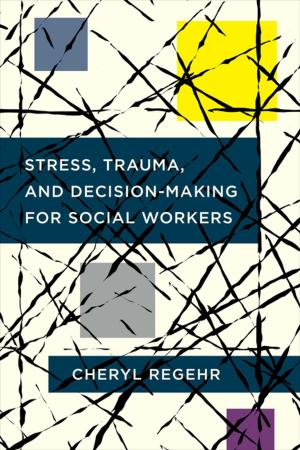Mutual Aid Groups, Vulnerable and Resilient Populations, and the Life Cycle
Nonfiction, Social & Cultural Studies, Social Science, Human Services, Social Work| Author: | ISBN: | 9780231502924 | |
| Publisher: | Columbia University Press | Publication: | February 23, 2005 |
| Imprint: | Columbia University Press | Language: | English |
| Author: | |
| ISBN: | 9780231502924 |
| Publisher: | Columbia University Press |
| Publication: | February 23, 2005 |
| Imprint: | Columbia University Press |
| Language: | English |
The contributors to this volume examine the role of mutual aid groups and social workers in helping members of oppressed, vulnerable, and resilient populations regain control over their lives. The chapters reveal the ways in which mutual aid processes help individuals overcome social and emotional trauma in contemporary society by reducing isolation, universalizing individual problems, and mitigating stigma. Using the life cycle as a framework the editors establish a theoretical model for practice and demonstrate how social workers as group leaders can foster the healing and empowering process of mutual aid. The contributors also consider the fundamentals of the mutual aid process, the institutional benefits of group service, and specific clinical examples of mutual aid groups. Each chapter offers detailed case materials that illustrate both group work skills and developmental issues for a variety of populations and settings, including HIV-positive and AIDS patients, the homeless, and perpetrators and victims of sexual abuse and family violence.
New chapters in this completely revised and updated third edition illustrate the power of mutual aid processes in dealing with children traumatized by the events of September 11, adult survivors of sexual abuse, parents with developmentally challenged children, people with AIDS in substance recovery, and mentally ill older adults.
The contributors to this volume examine the role of mutual aid groups and social workers in helping members of oppressed, vulnerable, and resilient populations regain control over their lives. The chapters reveal the ways in which mutual aid processes help individuals overcome social and emotional trauma in contemporary society by reducing isolation, universalizing individual problems, and mitigating stigma. Using the life cycle as a framework the editors establish a theoretical model for practice and demonstrate how social workers as group leaders can foster the healing and empowering process of mutual aid. The contributors also consider the fundamentals of the mutual aid process, the institutional benefits of group service, and specific clinical examples of mutual aid groups. Each chapter offers detailed case materials that illustrate both group work skills and developmental issues for a variety of populations and settings, including HIV-positive and AIDS patients, the homeless, and perpetrators and victims of sexual abuse and family violence.
New chapters in this completely revised and updated third edition illustrate the power of mutual aid processes in dealing with children traumatized by the events of September 11, adult survivors of sexual abuse, parents with developmentally challenged children, people with AIDS in substance recovery, and mentally ill older adults.















